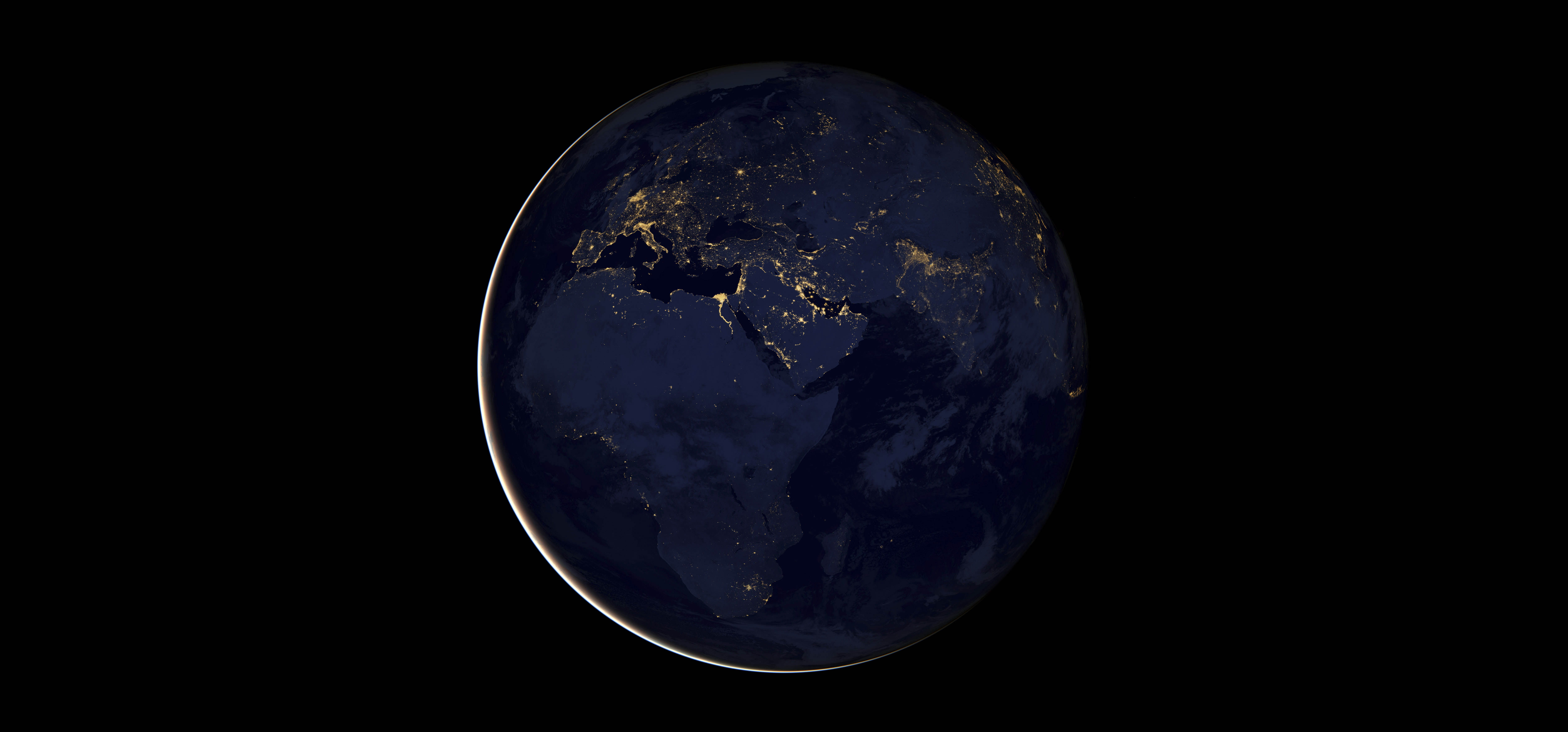Donald Trump's $10 trillion climate mistake
Trump and his fellow climate change skeptics claim that the science is unsettled while simultaneously proposing to end studies that would settle it. This will cost us — big league.


A free daily email with the biggest news stories of the day – and the best features from TheWeek.com
You are now subscribed
Your newsletter sign-up was successful
Climate change skeptics claim that the science is unsettled while simultaneously proposing to end studies that would settle it. This posture would be ironic and slightly amusing if it wasn't so flagrantly dangerous to the future of human civilization on Earth.
The latest iteration of this ludicrous hypocrisy was on full display last week when the House appropriations committee carved another $50 million from NASA's Earth science division, on top of the already severe 2018 cuts requested by the Trump administration. If eventually endorsed by Congress, the reductions will leave Earth scientists unable to fill gaps in data considered crucial to understanding the state of the planet, thus perpetuating the "unsettled science" that deniers profess to abhor.
The Climate Absolute Radiance and Refractivity Observatory (CLARREO) pathfinder is one of four NASA missions set for elimination. It is practically the apotheosis of the avowed Republican desire for highly accurate climate data and modeling. CLARREO improves the accuracy of spaceborne Earth sensors that use either the infrared or reflected solar spectrum. "In one sense, you can think of CLARREO providing for space instrument calibration what GPS provided for navigation," says Bruce Wielicki, the mission scientist of CLARREO. "Literally up to 100 sensors could achieve greatly improved calibration if CLARREO flies." It would make the comparison of data from different sensors easier and more accurate, with revolutionary implications for climate science.
The Week
Escape your echo chamber. Get the facts behind the news, plus analysis from multiple perspectives.

Sign up for The Week's Free Newsletters
From our morning news briefing to a weekly Good News Newsletter, get the best of The Week delivered directly to your inbox.
From our morning news briefing to a weekly Good News Newsletter, get the best of The Week delivered directly to your inbox.
The mission has been in development since 2008, answering the call of the previous year's Decadal Survey, an assessment of priorities of the Earth science community. "Our current sensors in orbit are not yet designed with the high accuracy of climate change in mind," says Wielicki. "As a result, slow calibration drifts in orbit cannot be detected and could be confused with actual Earth changes. Gaps in current satellite records lead to large uncertainty in how to bridge the gap: Did changes in the Earth, or changes between instrument calibration, cause what we see?"
CLARREO will provide an absolute accuracy of data required for rigorous climate change records, even if gaps occur. Moreover, its infrared spectrometer will be the first to measure the full infrared spectrum of the Earth, to include the far-infrared from 15- to 50-micron wavelength, where half of the Earth's thermal infrared radiation is emitted. "This is the spectral region where the water vapor greenhouse dominates, and can be used to verify the water vapor greenhouse effect as well as water vapor feedback, which acts to amplify human driven climate change," says Wielicki.
To understand the vital importance of the mission, says Roger Cooke, a member of the CLARREO team, one must look at the numbers and work out what we don't know, what we could know with CLARREO, and the price of inaction if we let inexplicably partisan politics prevent scientific progress. Cooke is a risk mathematician at Resources for the Future, an independent, nonpartisan research and analysis organization. He is perhaps the world's foremost expert in the mathematical modeling of risk and uncertainty. "If the Earth's temperature is set to rise at least 3 degrees centigrade in 100 years," he says, "we will need about 40 years to become 95 percent certain of that with the current observing systems. We'll be just as certain of that in 20 years with CLARREO."
It should go without saying, but if we're fighting to save our planet from catastrophic warming, the difference between achieving undeniable mathematical certainty in 20 years versus 40 years is enormously important — and valuable. How valuable? On the order of $10 trillion, Cooke estimates.
A free daily email with the biggest news stories of the day – and the best features from TheWeek.com
Climate change deniers want absolute certainty that the Earth is warming? Fine — here it is. And if the data say otherwise? "Look, if the temperature is not going to rise that much, then there's no problem. We don't have to do anything. We can relax and we don't have to make expensive sacrifices that are not necessary," Cooke says. On the other hand, if the climate is likely to rise 2 or 3 or even 6 degrees over the next 100 years, then we need to know as soon as possible, both to mitigate the risk and to prepare for its destructive effects.
Another project slated for cancellation: the Plankton, Aerosol, Cloud, ocean Ecosystem (PACE) spacecraft, a program ten years in the making. PACE will reveal the quantity and diversity of phytoplankton not just in the open waters of the ocean, but in the estuaries close to the shore. That diversity affects everything from the health of the planet to the health of fisheries that depend on a thriving marine ecosystem. The ocean economy in the United States accounts for 3.1 million jobs and contributes $350 billion to the country's GDP, according to Goddard Space Flight Center.
The mission will also advance human understanding of the interaction of the ocean, aerosols, and clouds — major factors affecting the climate. "There is this interplay between aerosols and clouds that we don't fully understand and we definitely don't understand it over the ocean," says Lorraine Remer, deputy lead of the PACE science team.
But here's the thing: To understand any of this, one side will have to admit that there is at least something mildly unsettling about the state of the environment, and give enough inches of ground to at least let the study of the Earth move forward. It is no surprise that feckless, third-rate hucksters like Fox News' Sean Hannity peddle a fear of science and scientists. Data would vaporize the Hannities of the world. Their microphones, however, have ground the debate into quasi-religious pulp.
All of this places scientists at a severe disadvantage. They do not speak an ecclesiastical language. The life's work of an actual scientist might involve the scrupulous study of vegetation feedback in Mauritania or soil moisture percentages in Guadalajara. Notably absent from Earth science conferences are climatologists slapping pulpits and shouting fiery speeches. Just the opposite, presentations consist chiefly of an endless parade of scholars plowing through scores of PowerPoint slides crammed to the margins with data and graphs. Nobody ever got the Holy Spirit in them after listening to a recitation of data generated from semi-parametric quantile regression models. Fox News is not bound by such restrictions as data or proof.
In reality, there is no scientific debate on the subject, anymore so than there is a scientific debate on the shape of the Earth, round versus flat. But it is far more difficult to convey scientific findings to the public than is it to convey skepticism or foment denialism. The latter requires no expertise, but only a willingness to say what it takes to garner another set of eyeballs. The state of the right calls to mind the famous story of priests refusing to look through Galileo's telescope. The story is apocryphal at best, but in the telling, at least the priests didn't deny the existence of the telescope.
In recent years, vast stretches of Antarctica have collapsed into the ocean. The Louisiana coastline is now disappearing by the staggering rate of one football field per hour. Sixteen of the last 17 years were the hottest ever recorded. That's not evidence enough? That doesn't make you at least mildly curious about what the hell is going on? Refusal to fly the spacecraft and instruments that will tell us is not a vote of no-confidence in the missions under discussion. Rather, it is refusal to see proof of what you already know to be true.
David W. Brown is coauthor of Deep State (John Wiley & Sons, 2013) and The Command (Wiley, 2012). He is a regular contributor to TheWeek.com, Vox, The Atlantic, and mental_floss. He can be found online here.
-
 How the FCC’s ‘equal time’ rule works
How the FCC’s ‘equal time’ rule worksIn the Spotlight The law is at the heart of the Colbert-CBS conflict
-
 What is the endgame in the DHS shutdown?
What is the endgame in the DHS shutdown?Today’s Big Question Democrats want to rein in ICE’s immigration crackdown
-
 ‘Poor time management isn’t just an inconvenience’
‘Poor time management isn’t just an inconvenience’Instant Opinion Opinion, comment and editorials of the day
-
 The billionaires’ wealth tax: a catastrophe for California?
The billionaires’ wealth tax: a catastrophe for California?Talking Point Peter Thiel and Larry Page preparing to change state residency
-
 Bari Weiss’ ‘60 Minutes’ scandal is about more than one report
Bari Weiss’ ‘60 Minutes’ scandal is about more than one reportIN THE SPOTLIGHT By blocking an approved segment on a controversial prison holding US deportees in El Salvador, the editor-in-chief of CBS News has become the main story
-
 Has Zohran Mamdani shown the Democrats how to win again?
Has Zohran Mamdani shown the Democrats how to win again?Today’s Big Question New York City mayoral election touted as victory for left-wing populists but moderate centrist wins elsewhere present more complex path for Democratic Party
-
 Millions turn out for anti-Trump ‘No Kings’ rallies
Millions turn out for anti-Trump ‘No Kings’ ralliesSpeed Read An estimated 7 million people participated, 2 million more than at the first ‘No Kings’ protest in June
-
 Ghislaine Maxwell: angling for a Trump pardon
Ghislaine Maxwell: angling for a Trump pardonTalking Point Convicted sex trafficker's testimony could shed new light on president's links to Jeffrey Epstein
-
 The last words and final moments of 40 presidents
The last words and final moments of 40 presidentsThe Explainer Some are eloquent quotes worthy of the holders of the highest office in the nation, and others... aren't
-
 The JFK files: the truth at last?
The JFK files: the truth at last?In The Spotlight More than 64,000 previously classified documents relating the 1963 assassination of John F. Kennedy have been released by the Trump administration
-
 'Seriously, not literally': how should the world take Donald Trump?
'Seriously, not literally': how should the world take Donald Trump?Today's big question White House rhetoric and reality look likely to become increasingly blurred
